第70章
Wait to be wooed and won. Ay, meacock. Who will woo you?
Read the skies. Autontimerumenos. Bonus Stephanoumenos. Where's your configuration? Stephen, Stephen, cut the bread even. S. D.: sua donna. Già: di lui. Gelindo risolve di non amar. S. D.
-- What is that, Mr Dedalus? the quaker librarian asked. Was it a celestial phenomenon?
-- A star by night, Stephen said, a pillar of the cloud by day.
What more's to speak?
Stephen looked on his hat, his stick, his boots.
Stephanos, my crown. My sword. His boots are spoiling the shape of my feet. Buy a pair. Holes in my socks. Handkerchief too.
-- You make good use of the name, John Eglinton allowed. Your own name is strange enough. I suppose it explains your fantastical humour.
Me, Magee and Mulligan.
Fabulous artificer, the hawklike man. You flew. Whereto? Newhaven-Dieppe, steerage passenger. Paris and back. Lapwing. Icarus. Pater, ait. Seabedabbled, fallen, weltering. Lapwing you are. Lapwing he.
Mr Best's eagerquietly lifted his book to say:
-- That's very interesting because that brother motive, don't you know, we find also in the old Irish myths. Just what you say. The three brothers Shakespeare. In Grimm too, don't you know, the fairytales. The third brother that marries the sleeping beauty and wins the best prize.
Best of Best brothers. Good, better, best.
The quaker librarian springhalted near.
-- I should like to know, he said, which brother you... I understand you to suggest there was misconduct with one of the brothers... But perhaps I am anticipating?
He caught himself in the act: looked at all: refrained.
An attendant from the doorway called:
-- Mr Lyster! Father Dineen wants...
-- O! Father Dineen! Directly.
Swiftly rectly creaking rectly rectly he was rectly gone.
John Eglinton touched the foil.
-- Come, he said. Let us hear what you have to say of Richard and Edmund. You kept them for the last, didn't you?
-- In asking you to remember those two noble kinsmen nuncle Richie and nuncle Edmund, Stephen answered, I feel I am asking too much perhaps. A brother is as easily forgotten as an umbrella.
Lapwing.
Where is your brother? Apothecaries' hall. My whetstone. Him, then Cranly, Mulligan: now these. Speech, speech. But act. Act speech. They mock to try you. Act. Be acted on.
Lapwing.
I am tired of my voice, the voice of Esau. My kingdom for a drink.
On.
-- You will say those names were already in the chronicles from which he took the stuff of his plays. Why did he take them rather than others? Richard, a whoreson crookback, misbegotten, makes love to a widowed Ann (what's in a name?), woos and wins her, a whoreson merry widow. Richard the conqueror, third brother, came after William the conquered. The other four acts of that play hang limply from that first. Of all his kings Richard is the only king unshielded by Shakespeare's reverence, the angel of the world. Why is the underplot of King Lear in which Edmund figures lifted out of Sidney's Arcadia and spatchcocked on to a Celtic legend older than history?
-- That was Will's way, John Eglinton defended. We should not now combine a Norse saga with an excerpt from a novel by George Meredith. Que voulez-vous? Moore would say. He puts Bohemia on the seacoast and makes Ulysses quote Aristotle.
-- Why? Stephen answered himself. Because the theme of the false or the usurping or the adulterous brother or all three in one is to Shakespeare, what the poor is not, always with him. The note of banishment, banishment from the heart, banishment from home, sounds uninterruptedly from The Two Gentlemen of Verona onward till Prospero breaks his staff, buries it certain fathoms in the earth and drowns his book. It doubles itself in the middle of his life, reflects itself in another, repeats itself, protasis, epitasis, catastasis, catastrophe. It repeats itself again when he is near the grave, when his married daughter Susan, chip of the old block, is accused of adultery. But it was the original sin that darkened his understanding, weakened his will and left in him a strong inclination to evil. The words are those of my lords bishops of Maynooth: an original sin and, like original sin, committed by another in whose sin he too has sinned. It is between the lines of his last written words, it is petrified on his tombstone under which her four bones are not to be laid. Age has not withered it. Beauty and peace have not done it away. It is in infinite variety everywhere in the world he has created, in Much Ado about Nothing, twice in As you like It, in The Tempest, in Hamlet, in Measure for Measure, and in all the other plays which I have not read.
He laughed to free his mind from his mind's bondage. Judge Eglinton summed up.
-- The truth is midway, he affirmed. He is the ghost and the prince. He is all in all.
-- He is, Stephen said. The boy of act one is the mature man of act five. All in all. In Cymbeline, in Othello he is bawd and cuckold. He acts and is acted on. Lover of an ideal or a perversion, like José he kills the real Carmen. His unremitting intellect is the hornmad Iago ceaselessly willing that the moor in him shall suffer.
-- Cuckoo! Cuckoo! Cuck Mulligan clucked lewdly. O word of fear!
Dark dome received, reverbed.
-- And what a character is Iago! undaunted John Eglinton exclaimed. When all is said Dumas fils (or is it Dumas père?) is right. After God Shakespeare has created most.